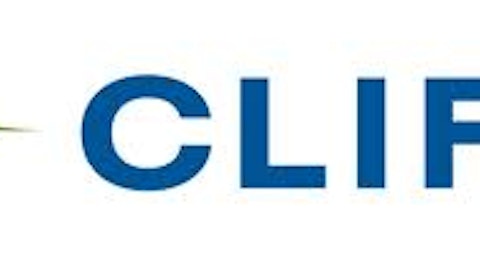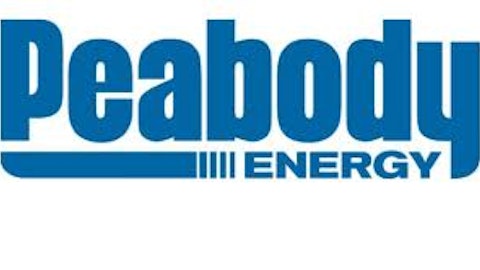
Even worse, its much-touted acquisition of the Bloom Lake mine complex in Quebec has thus far provided disappointing results. Cliffs Natural Resources Inc (NYSE:CLF) has delayed a key expansion at the mine and has given only vague guidance about when these activities might resume. Given the high hopes that the company expressed for Bloom Lake as recently as June of 2011, this comes as a serious setback. Shareholders have punished the firm by pushing its price-to-book ratio below 0.6. If Cliffs cannot turn around its fortunes soon, more drastic steps may need to be taken.
Financial Comparison with the Competition
As a major producer of basic raw materials like iron ore pellets, coking coal and lump ore, Cliffs Natural Resources Inc (NYSE:CLF) competes with some of the largest and most recognizable names in the mining industry. These include London-based Rio Tinto plc (NYSE:RIO) and Melbourne-based BHP Billiton Limited (NYSE:BHP).
Both Rio Tinto plc (NYSE:RIO) and BHP Billiton Limited (NYSE:BHP) are substantially larger than Cliffs. With a market capitalization of $2.6 billion and gross 2012 revenues of less than $5.9 billion, Cliffs Natural Resources Inc (NYSE:CLF) pales in comparison to Rio’s $85.2 billion market cap and $51 billion revenue haul. For its part, BHP has a $176.2 billion market cap and $67 billion in revenues.
Although Cliffs’ profitability is in the gutter, Rio Tinto plc (NYSE:RIO) is having its own set of problems. In 2012, Cliffs lost about $935 million to Rio’s loss of about $3 billion. These figures produced negative profit margins of 6.1% and 15.3%, respectively. Meanwhile, BHP Billiton Limited (NYSE:BHP) was broadly profitable with after-tax 2012 earnings of $9.6 billion and a positive margin of 14.4%. All three of these companies are highly leveraged, but Cliffs Natural Resources Inc (NYSE:CLF) is by far the worst off. The company has under $200 million in cash and a debt load of $4.3 billion. It also bled $500 million in cash during the last fiscal year. BHP Billiton Limited (NYSE:BHP) and Rio Tinto plc (NYSE:RIO) both have at least $5 billion in cash to fall back on.
What Went Wrong?
There is no easy scapegoat for Cliffs’ woes. Broadly speaking, the company is invested in two categories of basic materials that have fallen in price as a result of excessive supply and slackening demand. Many observers point to China’s weaker-than-expected economic growth and sudden emphasis on growing its economy’s service sector.
The Bloom Lake acquisition has also produced an unending series of headaches. Even before announcing its decision to delay the expansion of Bloom Lake Phase II, Cliffs Natural Resources Inc (NYSE:CLF) had warned shareholders that it would need to invest another $400 million to achieve full production at the facility. Shareholders who had taken the company’s promise of 8 million tons of consistent annualized production at face value were not expecting to hear of these setbacks. At this point, Cliffs’s shareholders are simply hoping that the company will be able to complete its expansion within the next 18 months. For some examples of more promising investments in the metals sector, click here.



